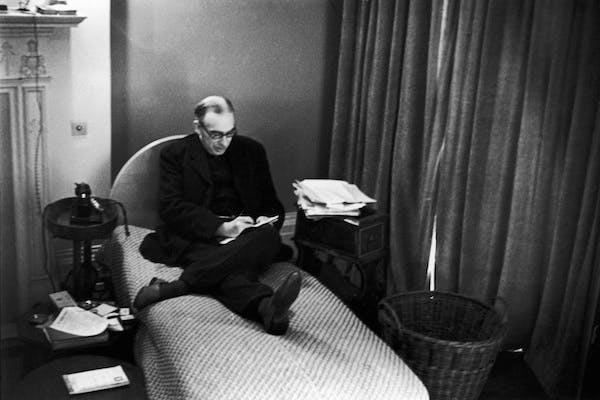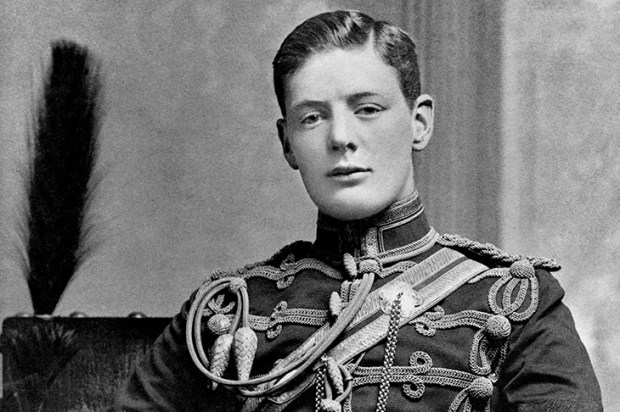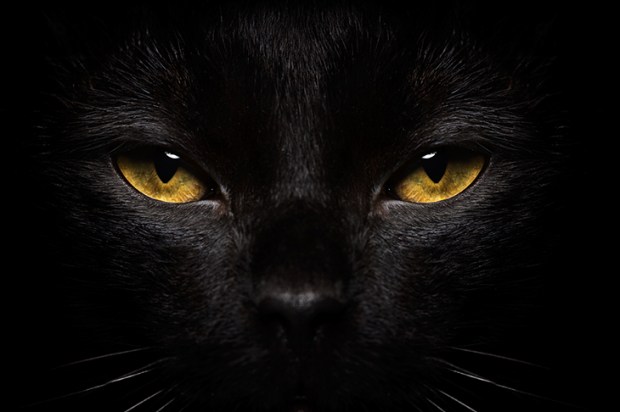Is it homophobic to argue that it’s mainly gay men who keep the flame of popular culture alive? If so, then Simon Napier Bell has some grovelling to do. Napier Bell, as I’m sure you all know, is the rock impresario who has managed everyone from the Yardbirds to Wham!, and who a few years ago wrote an excellent book on the music business called Black Vinyl, White Powder.
At least I thought it was excellent at the time. What I realise with hindsight, though, is that the book was in fact deeply offensive in its reductive and stereotypical view of homosexual behaviour. It argued that gay men — unburdened by the shackles of responsibility that come with parenthood — tend to go on clubbing for years, even decades, after their heterosexual contemporaries have given it up. This means, contended Napier Bell, that gay men serve at least two vital functions in the development of popular music: on the one hand as insatiable novelty seekers who keep it fresh; on the other as guardians of the old traditions, ensuring that even as music changes it remains rooted in its past.
It’s a fascinating theory but obviously he should never have advanced it. What about all the gays who always preferred opera to banging house? What about all the gays who adopted children and settled down to the clubbing-free lives that heterosexual families lead? What about all the gays who are lightweights and realise from the age of 22 that drugs and late nights simply don’t agree with them? What about gays with Alzheimer’s who don’t remember what music was like last week, let alone last decade?
I’m sure we can all add our own damning ‘what abouts?’ to this list, proving once and for all that gay men have nothing in common with one another whatsoever, and still less in common with: camp; Judy Garland; Tom of Finland; hedonism; childlessness; bottoms; clubbing; pink; infuriatingly loud drumming sessions outside theatres. Then, with luck, we’ll manage to screw an apology out of Napier Bell in the same way that various gay rights activists managed to screw an apology out of Niall Ferguson for his outrageous and reductive and insulting suggestion that Keynes’s economic theories may have been motivated, in part, by the fact that he was a homosexual and childless.
I don’t think there’s much doubt about Keynes’s latent gayness: not without reason was he known as the ‘Queen of King’s’. And I’m not really sure that the fact that he later married and attempted (unsuccessfully) to have children proves anything very much. Unless, of course, you’re a modern, professional-offence-taking gay activist, in which case it’s the final clincher in your compelling argument that Ferguson is totally evil and really should lose his Lawrence A. Tisch professorship at Harvard right this second for — as one angry commentator put it — taking ‘gay-bashing to new heights’.
New heights? Really? As Jonah Goldberg has noted, it’s not like there’s anything particularly new or controversial in Ferguson’s theory, tossed off lightly in response to a question at an economics conference. ‘He was childless and his philosophy of life was essentially a short-run philosophy,’ wrote Schumpeter in his obituary of Keynes.
And in a 1986 Harvard Business Review article, George Sim Johnston went further:
John Maynard Keynes would have done a great service if he had begun The General Theory of Employment, Interest and Money with the disclosure that he was a Bloomsbury aesthete and a practising homosexual. He could have explained how he and his friends did not believe in self-denial or consider that they had any obligation to posterity. (An historian has pointed out that Keynes’s famous remark, ‘In the long run we are all dead’ is easy to make if you have no children and don’t want any.) Perhaps as a result we might have lower federal deficits.
Johnston was a distinguished New York investment banker and philanthropist who had served in the army in both the second world war and Korea. I wonder how much ice this would have cut with the contemporary PC lobby. Very little, I suspect. A comment like that — presuming the Harvard Business Review would have published it today — would almost certainly have seen him forced to resign his position on the board of the New York Society for the Prevention of Cruelty to Children, perhaps even his presidency of his investment business.
Which is why, of course, Niall Ferguson was forced to issue an apology. Not, I suspect — or rather, I hope — because he thought he’d done anything wrong, but because all too easily it could have become the chink in the armour into which his many enemies were able to insert their fatal stilettos. (I know whereof I speak here, you may recall.)
Here’s how it works: lots of liberal-lefties utterly loathe Ferguson for having committed the unforgivable crime of being an articulate and prominent exponent of right-wing views. Unfortunately, we don’t (yet) live in an era where voicing right-wing views is an indictable offence; so the way to get at such dangerously outspoken defenders of free markets, liberty and small government is through the back door, a bit like Al Capone eventually being done for tax evasion. Racism would have been the ideal charge (except Ferguson’s marriage to Ayaan Hirsi Ali scuppered that option); as too would perceived sexism (which did for Harvard president Larry Summers, remember); but the homophobia charge — had not Ferguson nipped it in the bud — would have surely worked its poison just as well in the end.
I perfectly understand why Ferguson apologised but I wish he hadn’t and I’m sure in his heart he knows he shouldn’t have done. As an economic historian, he’ll be familiar with Danegeld: the more you concede to the enemy, the more they’ll demand next time round.
Got something to add? Join the discussion and comment below.
Get 10 issues for just $10
Subscribe to The Spectator Australia today for the next 10 magazine issues, plus full online access, for just $10.















Comments
Don't miss out
Join the conversation with other Spectator Australia readers. Subscribe to leave a comment.
SUBSCRIBEAlready a subscriber? Log in